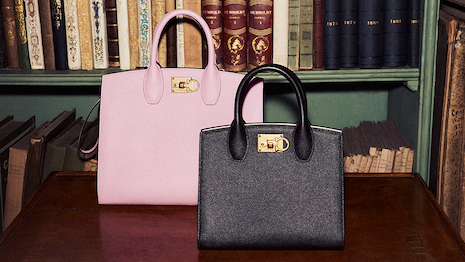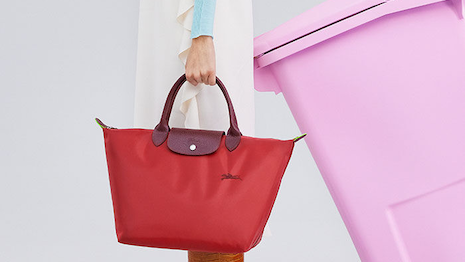 Baby boomers should not be overlooked when it comes to product authentication and transparency. Image credit: UBS
Baby boomers should not be overlooked when it comes to product authentication and transparency. Image credit: UBS While younger consumers may get most of the credit for being mindful of sustainability, a new survey has found that baby boomers value product authenticity and sustainability more than Gen Zers do.
According to a new survey by product digitization company Digimarc, 80 percent of baby boomers care about the authenticity of their products compared to 53 percent of Gen Z consumers. Baby boomers also lead other age groups when it comes to caring about whether brands are reputable or take environmental responsibilities seriously.
“Consumers of all ages have significant concerns about how the products they buy are made, where they’re made and what’s in them,” said Ken Sickles, chief product officer at Digimarc, in a statement.
“Our recent consumer study shows that baby boomers are, quite surprisingly, more concerned than the youngest shoppers are about buying genuine products from reputable brands that are committed to sustainability,” he said. “To address these concerns among shoppers of all demographics, brands need to not only ensure their product and brand integrity, but clearly communicate their trustworthiness and authenticity to consumer audiences.”
The findings are based on a survey of more than 2,000 U.S. consumers conducted in April 2022. Gen Zers are defined as consumers ages 16–24, millennials as ages 25–44, Gen Xers as ages 45–54 and baby boomers as ages 55 and older.
Consumer concerns
Most consumers across age groups are concerned about authenticity and sustainability, but baby boomers are more apprehensive than others in both respects.
For instance, counterfeit goods can be a concern whether buying new or secondhand.
 No luxury shopper wants to purchase counterfeit goods. Image credit: Salvatore Ferragamo
No luxury shopper wants to purchase counterfeit goods. Image credit: Salvatore Ferragamo
Sixty-four percent of baby boomers are concerned about whether new purchases are counterfeit, compared to 54 percent who are worried about the authenticity of secondhand purchases. Gen Zers are similarly concerned about new and secondhand buys at rates of 53 and 50 percent, respectively.
Additionally, 60 percent of Gen Xers and 56 percent of millennials are concerned about the authenticity of new purchases.
Product quality and authenticity are shoppers’ top concerns with luxury goods purchases. More than three-quarters of all demographics care about product quality when buying luxury, and baby boomers and Gen Xers care the most about where luxury items are made at 73 percent.
Nearly eight in 10 boomers are also concerned about what their purchases are made of, regardless of the price point, compared to 54 percent of Gen Zers.
Both boomers and Gen Xers are more interested in being able to recycle products at the end of their useful lives, at 54 and 53 percent, respectively. Fifty-one percent of millennials cite the same concern, compared to 46 percent of Gen Zers.
 Longchamp has introduced Le Pliage styles made with recyclable materials. Image credit: Longchamp
Longchamp has introduced Le Pliage styles made with recyclable materials. Image credit: Longchamp
More than six in 10 baby boomers are concerned about brands’ environmental responsibilities and reputations as a whole, followed by 58 percent of Gen Zers, 56 percent of Gen Xers and 55 percent of millennials.
Less than half of Gen Z consumers, 49 percent, are concerned with how the people who grow or make products are treated, compared to 55 percent of millennials and 54 percent of both boomers and Gen Xers.
Showcasing product authenticity
Regardless of whether they are targeting baby boomers or Gen Z shoppers, more luxury brands are investing in digital tools to reinforce product authenticity and sustainability.
The growth of ecommerce has contributed to an increase in counterfeit goods, but brand protection teams are turning to digitalization as a way to fight fraud. Consumer-facing technology such as smart tags has become a crucial element in protecting brands and shoppers from counterfeit luxury products (see story).
U.S. leather goods house Mark Cross has implemented TrueTwins technology to provide a digital passport for each piece. This will empower consumers with information about a product’s environmental impact, authenticity and valuation (see story).
Swiss watchmaker Vacheron Constantin is certifying its entire range of timepieces with blockchain technology to fight against counterfeits. Owners will also be able to register and authenticate their watches with a new platform, The Hour Club (see story).